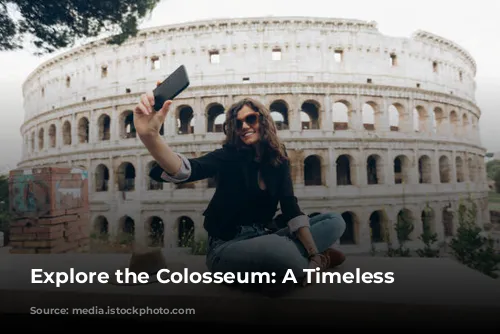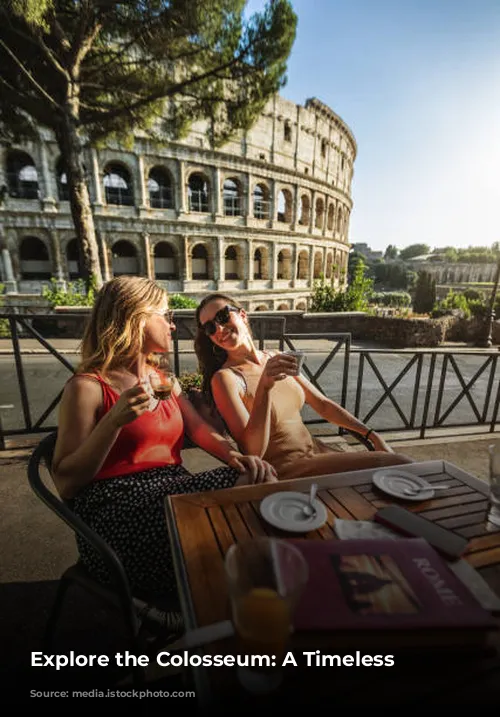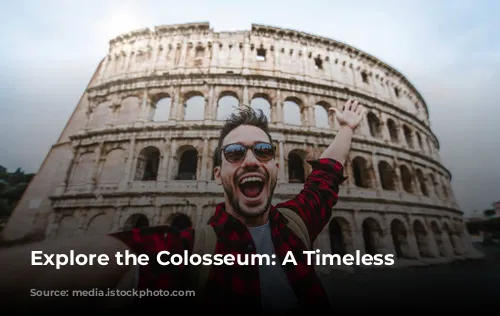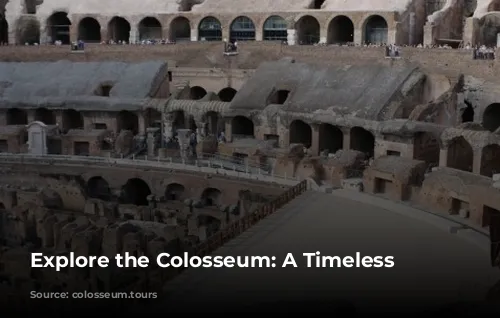Embark on a journey back in time to the heart of ancient Rome, where the Colosseum stands as a magnificent testament to the power and grandeur of the Roman Empire. This iconic amphitheater, once a stage for gladiatorial combat, animal hunts, and mock naval battles, now captivates visitors with its awe-inspiring architecture and rich history.
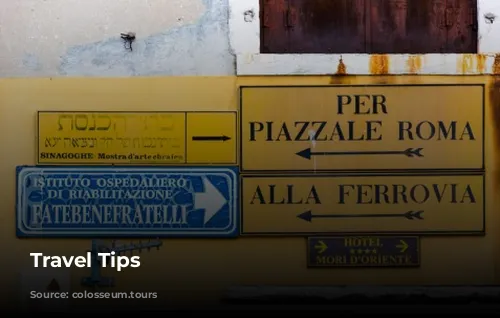
Colosseum Visiting Hours: Plan Your Visit
Timing is everything when visiting the Colosseum, ensuring you experience its majesty without the rush.
- January 2nd to February 15th: 8:30 AM – 3:30 PM
- February 16th to March 15th: 8:30 AM – 4:00 PM
- March 16th to the Last Saturday of March: 8:30 AM – 4:30 PM
- Last Sunday of March to August 31st: 8:30 AM – 6:15 PM
- September 1st to September 30th: 8:30 AM – 6:00 PM
- October 1st to the Last Saturday of October: 8:30 AM – 5:30 PM
- Last Sunday of October to December 31st: 8:30 AM – 3:30 PM
Don’t forget to check the official website for any updates or special events.
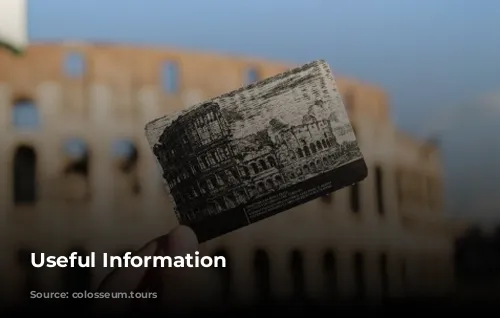
Navigating the Colosseum: A Smooth Entry
To ensure a seamless and enjoyable visit, it’s highly recommended to book your tickets in advance. Not only will this help you avoid long lines and secure your preferred time slot, but it often grants you skip-the-line access, allowing you to make the most of your time exploring this iconic attraction.
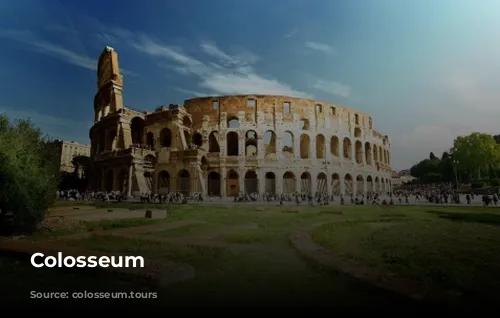
What to Leave Behind: Important Rules for Visitors
While you’re eager to step inside the Colosseum’s grandeur, remember that some items are prohibited to maintain safety and security.
- Large bags or backpacks: These can be a security risk and make it difficult to navigate through the crowded areas.
- Wheeled or roller bags: These are not allowed inside the Colosseum due to space limitations and accessibility issues.
- Glass containers or bottles: For safety reasons, glass is prohibited inside the Colosseum.
- Weapons: Weapons of any kind, including pocket knives, are strictly forbidden.
- Aerosol sprays: These can be a fire hazard and are not allowed inside the Colosseum.
Be sure to check the Colosseum’s official website for any additional guidelines before your visit.
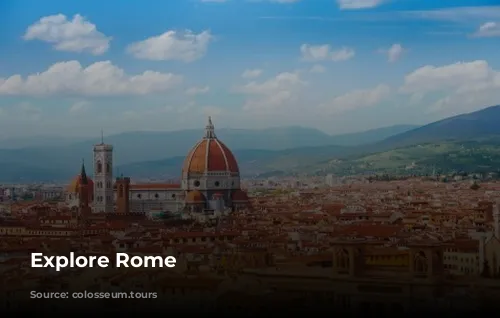
The Colosseum’s Epic History
The Colosseum stands as a testament to the Roman Empire’s architectural prowess and its love for entertainment. Built around 70-80 AD by Emperor Vespasian, it’s a massive oval-shaped structure with four levels, reaching around 48 meters in height.
This architectural marvel showcases the brilliance of Roman engineering. Made from limestone, concrete, and bricks, the Colosseum features three tiers of arches adorned with different types of columns. The lower level boasts Doric columns, the middle Ionic, and the upper Corinthian.
Clever design allowed for efficient movement of people and animals during events. Ramps, stairs, and tunnels provided easy access, ensuring a smooth flow of spectators in and out. This innovative approach highlights the Romans’ remarkable architectural skills.
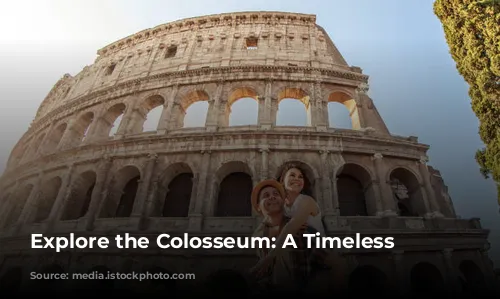
The Colosseum: A Captivating Nighttime Experience
As the sun sets, the Colosseum transforms into a majestic silhouette against the dark sky. Its illuminated outline creates a captivating spectacle, evoking the thrill and excitement of its ancient past. The peaceful atmosphere and the enchanting beauty of the lit-up Colosseum provide a unique experience, connecting us to the rich history of ancient Rome.
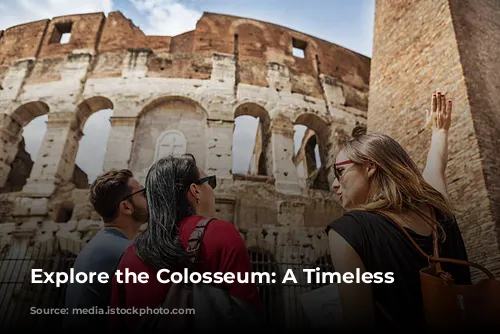
Beyond the Colosseum: Exploring Ancient Rome
Your journey through ancient Rome extends beyond the Colosseum, leading you to other iconic landmarks that offer glimpses into the past. Join a guided tour to discover these treasures, with knowledgeable guides providing insights into their history and significance.
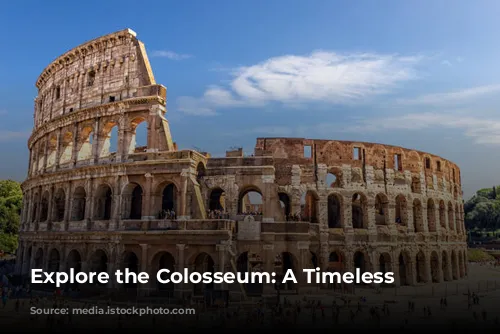
A Guided Tour Through Time: Unveiling Ancient Rome’s Secrets
Immerse yourself in the history of ancient Rome with a guided tour, allowing you to experience these iconic sites in an engaging and informative way. A friendly and professional tour guide will personalize your tour, catering to your interests and ensuring a memorable experience.
Step back in time as you explore the Colosseum and discover its grandeur and the stories of gladiatorial combats that once unfolded within its walls. Then, ascend Palatine Hill, where emperors once resided in grand homes, and enjoy breathtaking views over the city.
Descend into the Roman Forum, a bustling center of political life in ancient Rome. Wander along ancient roads and marvel at the remnants of temples, offices, and the Senate building.
With a knowledgeable guide by your side, you’ll gain insights into the rich history of these famous landmarks and gain a deeper understanding of ancient Rome’s influence on the world.
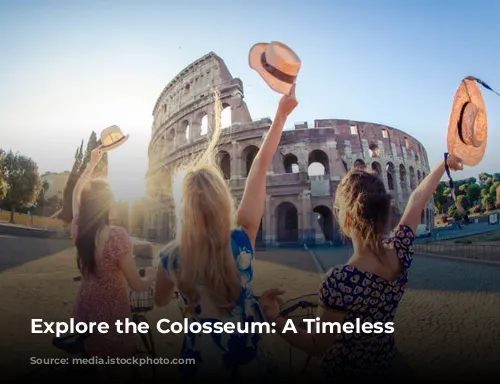
The Vatican: A Center of Faith and Art
Your exploration of Rome is incomplete without a visit to the Vatican, a city within a city that holds immense historical and spiritual significance.
The Vatican Museums showcase a vast collection of artistic treasures, including masterpieces by Michelangelo and Raphael. Prepare to be mesmerized by the Sistine Chapel’s captivating frescoes, especially Michelangelo’s breathtaking ceiling masterpiece.
St. Peter’s Basilica, with its awe-inspiring architecture and religious significance, is a must-see. This majestic basilica stands as a testament to faith and artistry, leaving visitors in awe.
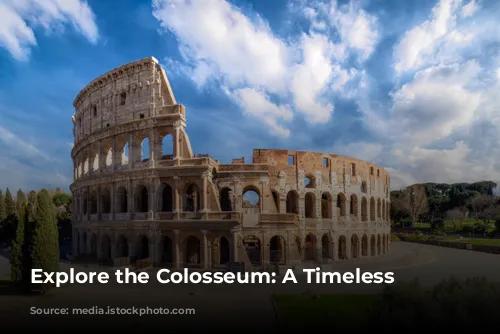
Rome’s Neighborhoods: A Glimpse into Local Life
Beyond the grand landmarks, Rome offers a vibrant tapestry of neighborhoods, each with its own unique character and charm.
Trastevere: With its narrow cobblestone streets and colorful buildings, Trastevere exudes a bohemian charm. Explore its bustling piazzas, lively trattorias, and vibrant nightlife.
Monti: This eclectic neighborhood blends ancient ruins with trendy boutiques and artisanal shops. Wander through its labyrinthine alleys, discovering hidden gems, quaint cafes, and artisan workshops.
Both neighborhoods offer picturesque squares where locals gather, creating a lively atmosphere perfect for leisurely strolls and soaking in the authentic Roman experience.
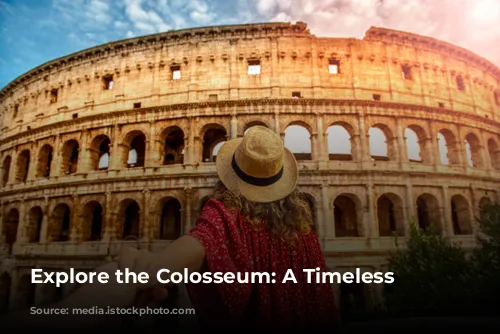
Free Entry to Museums: A Cultural Delight
Every first Sunday of the month, Rome offers free entry to state-owned museums, galleries, parks, and some archaeological sites. This is an excellent opportunity to explore Rome’s cultural treasures, but be prepared for larger crowds on this day. Consider arriving early to make the most of this exciting opportunity.
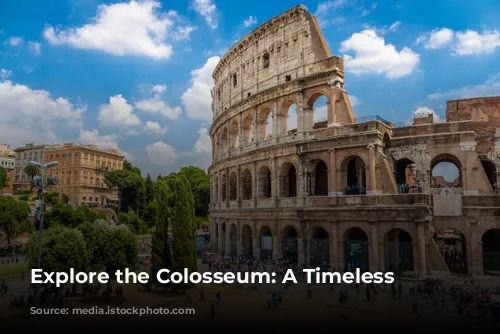
The Colosseum: A Symbol of Rome’s Past and Present
Standing tall in the heart of Rome, the Colosseum remains a symbol of the ancient Roman Empire’s power and might, much like the Eiffel Tower in Paris. It embodies the grandeur and spectacle of ancient Rome, captivating visitors from around the world.
Today, the Colosseum continues to enchant visitors with its timeless beauty and rich history, reminding us of the Romans’ ingenuity and architectural brilliance. It’s a testament to the enduring legacy of ancient Rome and a must-visit for any traveler seeking to explore the heart of this historic city.
